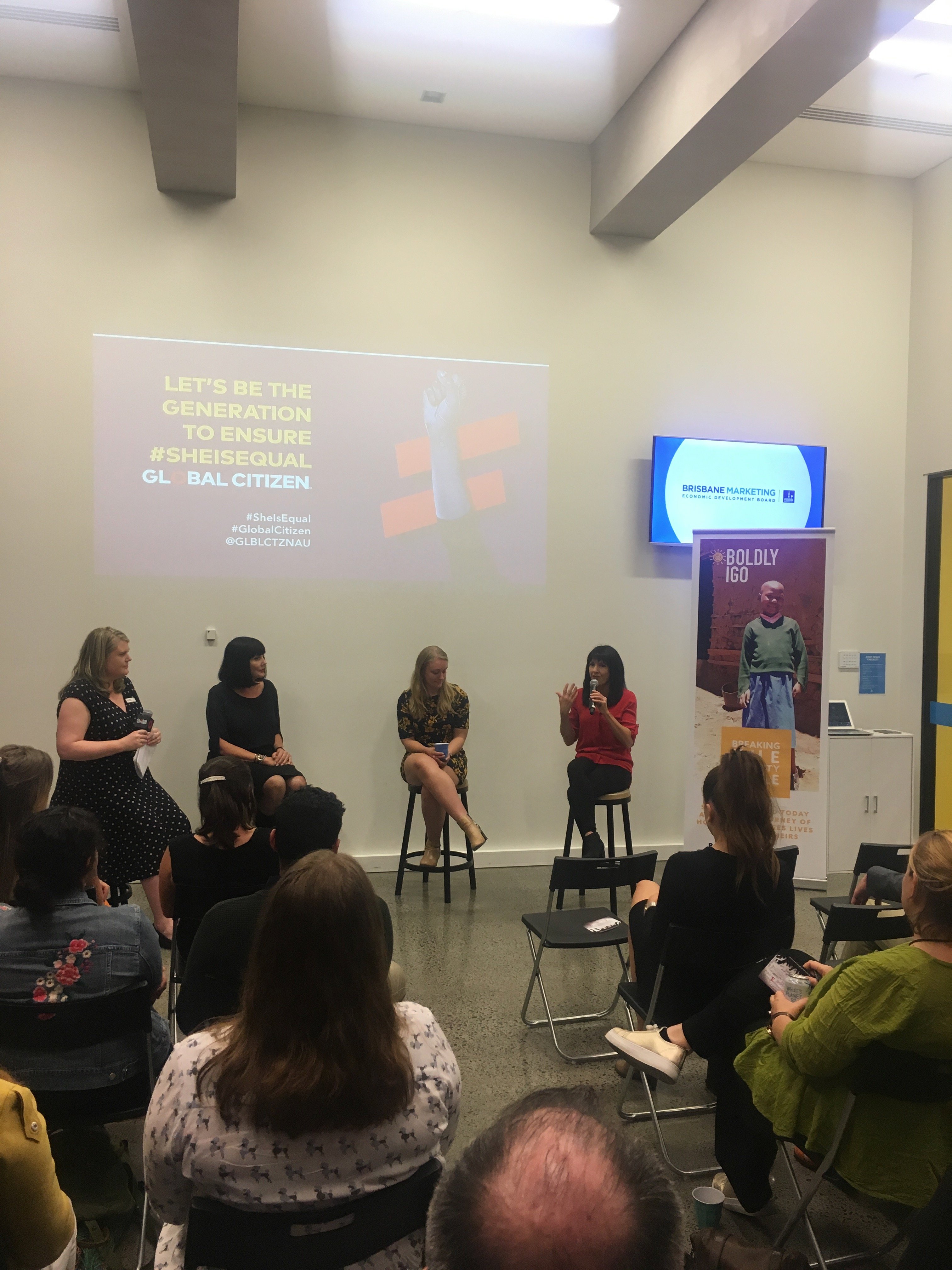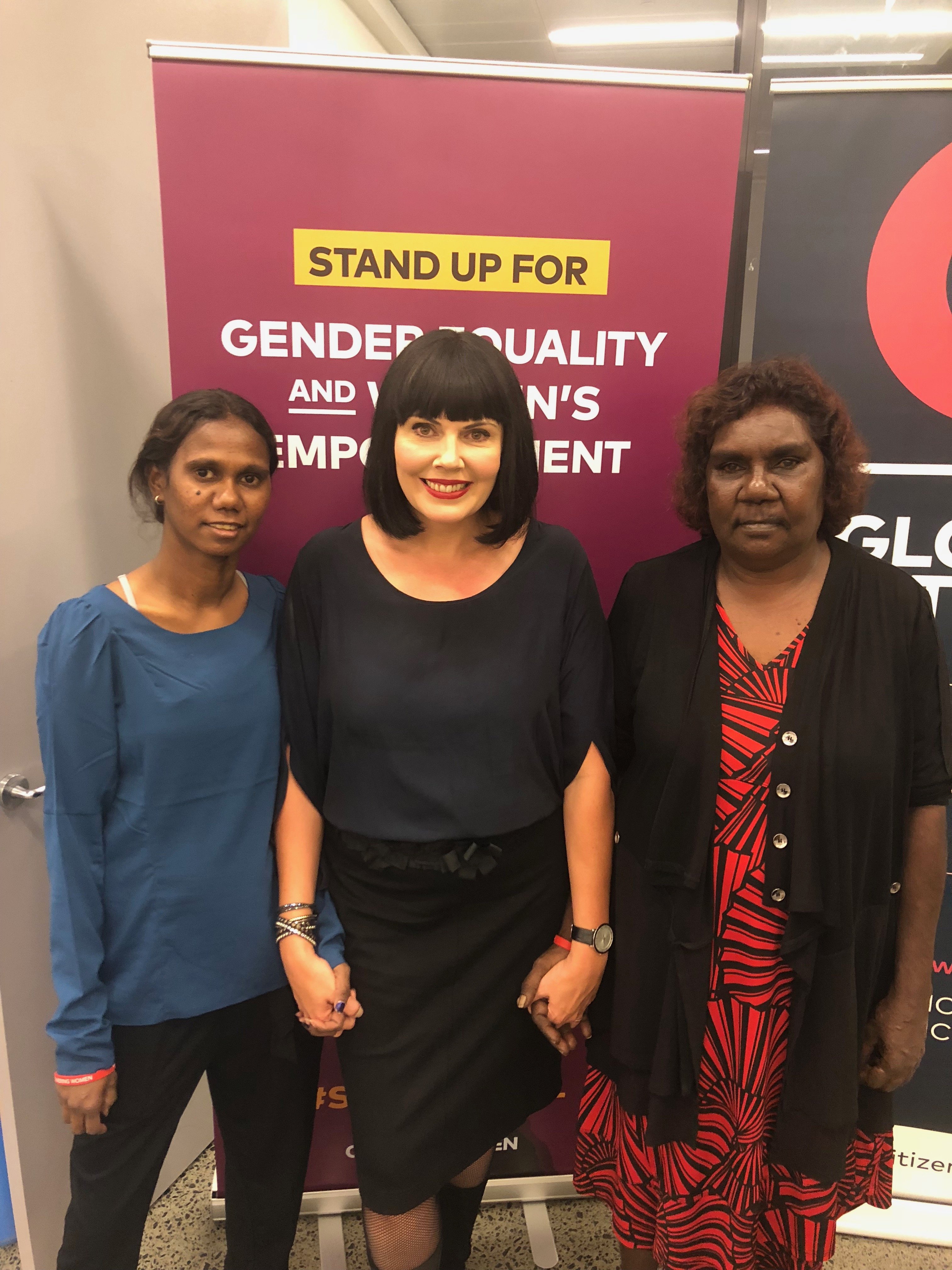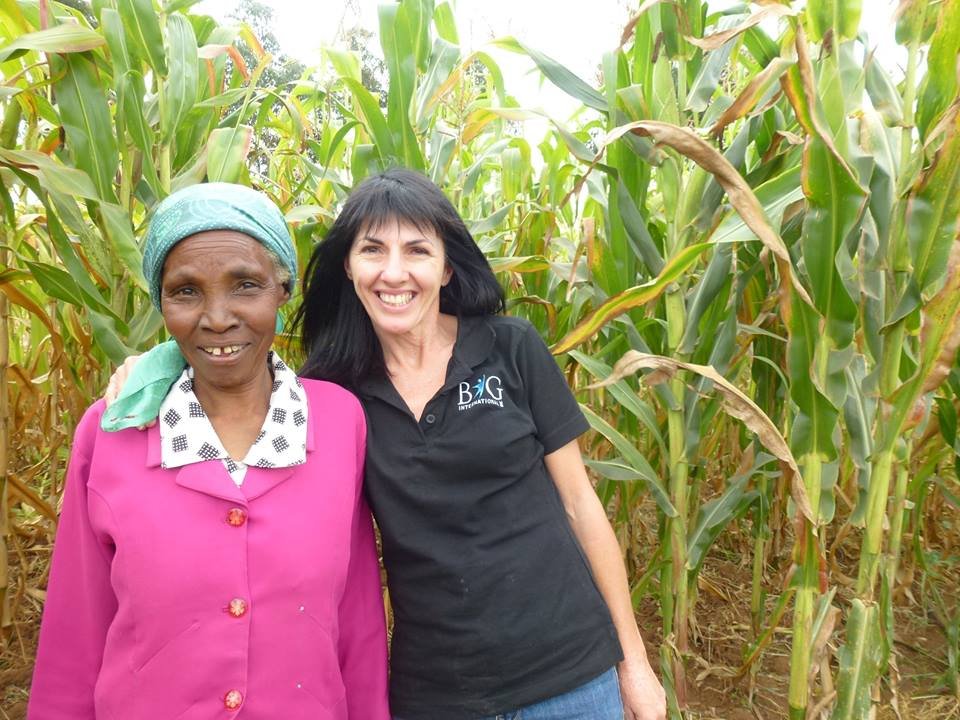Global Citizen kicked off the Australian launch of the #SheIsEqual campaign in Brisbane on Aug. 16.
The event saw engaged citizens, youth activists, the Global Citizen Australia team, and inspiring local changemakers convene to call for a fundamental and radical shift to the way societies, governments, health systems, and workplaces treat women and girls.
Take Action: #LeveltheLaw and help empower women and girls in the Asia-Pacific region
Three inspiring local changemakers — Yolonde Entsch, Madeline Price, and Cathy Zeiger — graced the stage throughout the night to speak about their organisations and the work they individually do to combat gender inequality.
From disadvantaged Australian towns to remote Papua New Guinean villages and the plains of Kenya, these three activists are constantly travelling the world to tackle the issues that hold women and girls back.
In front of a seated crowd of 60, Sarah Meredith, the Australian country director at Global Citizen, introduced the #SheIsEqual campaign and conveyed Global Citizen's long-standing commitment to tackle gender discrimination and overcome injustices.
“Lifting girls and women out of extreme poverty is critical,” she stated. “To do this we need health services readily available to women, particularly maternal health programs. We also need women to sit on boards, in parliaments, and within high business positions to ensure women’s issues are constantly front of mind.”

The #SheIsEqual campaign is a cornerstone event of Global Citizen’s year-long "Be The Generation" campaign, a movement inspired by the lifelong dedication to fight injustices by anti-apartheid revolutionary and philanthropist Nelson Mandela.
“As long as women are bound by poverty, human rights will lack substance,” Mandela famously stated. “As long as the nation refuses to acknowledge the equal role of more than half of itself, it is doomed to failure.”

Among those fighting for a radical shift in the way women and girls are treated is Price, and her organisation the One Women Project. During the event, she told audiences that the key to shifting gender inequality is to focus on addressing long-standing discriminatory gender roles within home environments.
“A fantastic first step to shift the inequalities set in place by a society that has long devalued the role of women is to get people to firstly understand what gender roles and stereotypes actually are,” Price stated. “That way it is so much easier for people to call out misogyny when they see it.”
Read More: One Woman's Fight for Australia's Gender Equality

Likewise, Entsch, an activist who empowers women through tailored programs and personal workshops, told audiences that women desperately need to be given a seat at the table it terms of C-suite positions and political leadership roles.
Entsch has recently partnered with Moon Sick Care Bag, an initiative which sees Aboriginal women in the far north Queensland town of Doomadgee create washable sanitary pads for women and girls in rural Papua New Guinea. Two Doomadgee women, Veronica Walden and Anthea Chong, joined Entsch at the event to talk about their initiative.
“With regards to progressing the gender equity goal, our Moon Sick Care Bags absolutely empower women and girls because they no longer need to consider or worry about what they are going to use next month when they menstruate,” Entsch stated. “Girls will be able to stay in school instead of staying home and women will be confident tending to their families or work responsibilities.”
Read More: Menstruation Just Got a Whole Lot Easier for Girls and Women in Papua New Guinea

Similarly captivating the audience was Cathy Zeiger, who launched the Australian charity Boldly I Go in 2008. The charity provides child sponsorship, income generating projects, life skills, and training programs to people in the rural towns surrounding Nyahururu — a region 200 kilometres north of Nairobi.
“Women need a hand up, not a hand out. Providing education for children, particularly girls, gives them future choices and breaks the poverty cycle," Zeiger announced. "Providing training, mentoring, and support along with a small capital investment provides the basis to sustainable income."
Read More: Australian Charity Aims to Help Break the Poverty Cycle for Kenyan Children
The Australian #SheIsEqual campaign launch follows the global campaign launch in Brussels in April. Throughout 2018, Global Citizen intends to secure 20 new commitments and announcements totaling $500 million, a figure which will impact the lives of 20 million women and girls.
“Progress depends on courageous political leaders, activists, and everyday citizens," Madge Thomas, Global Citizen's senior director of global policy and government affairs, announced at the Brussels campaign launch. “We need everybody to stand up for the health and equal rights of women and girls.”